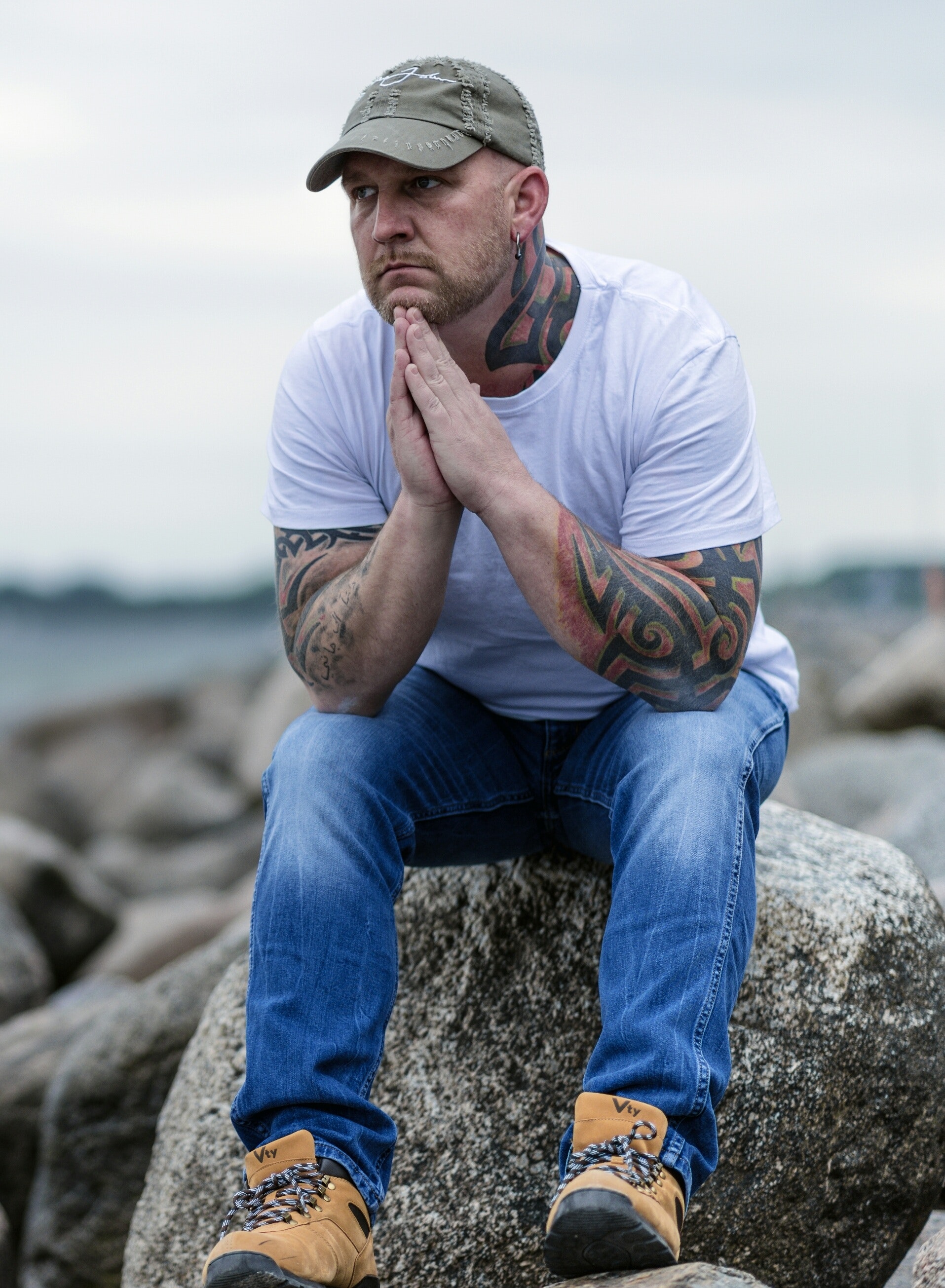
Tom was worried sick. After twenty years of marriage, his wife had left. He had three kids, Bella and Dylan at home and Bodin in college, and he was desperately trying to keep their family afloat. His wife, Karen, had had an affair with the guy across the street. Then she moved out to pursue a new lifestyle. Her behavior had been erratic, and she was drinking heavily. Tom was afraid for the kids to be alone with her, afraid of the danger of her driving under the influence. The kids missed her dreadfully, and cried that she had left. They were too young to understand her behavior, and blamed Tom that he “drove her away.” When your family tanks–how can you land on your feet?
He not only felt helpless, he was helpless. And so betrayed. The kids seemed to be instinctively protective of her. He understood and tried to support their emotions, while continuing to be strong so they’d feel secure. But he didn’t feel strong. He felt like he’d unravel at any moment.
Friends of the family tried to help by taking the kids to school when they missed their bus, dropping by with dinner, and shuttling the kids to their practices and home again. Tom was beyond grateful for the kind souls who helped in so many ways while he was at work.
But in his core, he’d never felt so gutted, so without resilience, in the face of all this. Although he required they clean their rooms and help with folding clothes, he was tolerant with just how little they did; they barely completed their chores. Everyone was hurting.

Then the phone calls started.
Late night drunken phone calls from his estranged wife, accusing him of all sorts of despicable acts that came out of her twisted, inebriated imagination. She was immune to reason, and the fact that he had never even thought of doing the vile acts she accused him of made no difference. Her bitterness toward him drove her to tell all these horrors to the kids. And the trusting kids believed her.
After he would end the call, he’d quake with sobs, unable to believe his wife of over 20 years could even think these things. How do you land on your feet in this chaos?
But as terrible as all this was, his deepest fear was the potential damage to his kids. Bella and Dylan were in middle school. They were old enough to assert themselves and express their anger, but too young to be able to reason what was reality and what was imaginary on their mom’s part.
After living lives as a happy family, with activities, responsibilities, and rewards, this traumatic situation had crashed into them out of left field. Everything they had grown up to believe in was being shattered. Their trust was shattered. How would they ever be OK again and land on their feet?
How would they live their lives after seeing their very foundations disintegrate beneath them?

Next, it came out that his wife had been living with a new guy, but had left him and was living with another.
How could he let his children go to her house? In the midst of all that?? But if he forced his will, it would alienate the kids even more than they already were.
He told them often how much he loved them, and how heartbroken he was that they were going through this chaos, but it was hard for them to hear. They were torn about whether they could believe him because it would imply their mom couldn’t be believed. They didn’t really want to consider that.
And what about school? The trauma and chaos in their family life caused school to dim in importance for them. Tom talked with them often about how important it was to try to stay engaged in school and not let it slide. That their involvement in something steady, stimulating, and reliable could really help them get through all this.
Tom tried so hard.
To keep their home intact, eat evening meals at the table so they could talk about their day, to ask about their homework and how it was going for them. They insisted on going to their mom’s house so he gave in. But each time he worried and worried that they’d have access to alcohol, or some other substance. He knew his wife lacked boundaries when she was like this.

He also worried about a car accident if his wife drove impaired.
Never in his wildest dreams could he have imagined he would one day use the courts to protect his kids from their own mom. She’d been a great nurturing mom up until now. It was shattering. He seriously wondered if there was any path back to restoring their family. He deeply feared he would have to parent the children alone. They deserved so much more. He desperately hoped they could land on their feet a year from now.
After the kids told him about a close call in the car, he talked to his lawyer to require the kids have visitation with their mom at his house, so he could keep them safe. And that made the kids more angry.
Tom’s work suffered severely. But after 25 years in a strong company, they were giving him lots of slack to manage the crises in his family. However, he just couldn’t seem to revive the creative thought that had earned him his position. When he was at the office, he was stymied by distraction, wondering how the kids were doing. He hoped his oldest was managing to keep his grades up in college.
Time would tell about that.
Finally, he had to sit down and think hard about the stress. The kids were suffering from a great deal of stress, but it wasn’t just the kids. He, himself, was suffering. And it was affecting everything. His work, his effectiveness with his children in their time of need, his own health and wellbeing. Something just had to give.

He decided to make an appointment with the psychiatrist his wife had seen. He wasn’t sure what he needed, or if he could get his feet back under him. But it just seemed like a good place to start.
The doctor was so sorry to hear what was going on with Karen. She hoped Karen would reach out for help. But she wanted to focus on Tom and how the traumas and tragedies were affecting him.
His constant worry, exhaustion, and anxiety plus added depression symptoms, made him a candidate for a special treatment.
Since antidepressants he had taken earlier that year hadn’t been effective, she recommended ketamine treatment to help him gain hope and resilience. She said it could also calm the unrelenting worry and fear and help him land on his feet again.
By the third or fourth infusion, Tom could tell he was changing. It was hard to put his finger on it, because it was subtle, but he was feeling stronger… and getting trickles of hope.
By the 6th infusion, he was laughing at times, and feeling a bit more relaxed.
He continued for 2 more infusions and began seeing a therapist to help him untangle the emotional paralysis he’d felt. Hope was growing inside him every day. The energy to tackle work was coming back.

And he began to rise above the chaos at home and think of fun things to take the kids to do, to help them unwind and talk more freely. As a family, they broadened in their thinking together as they communicated about what had happened with their mom, but also about their hopes and dreams for their own lives.
They enrolled in riding lessons together, so they could enjoy horses and the fresh air as a family. And they went camping, talking by the fire, making s’mores, and hiking in the mornings.
Little by little, over time, life began to balance out.
Meanwhile, Karen kept her appointments with her psychiatrist, and started taking her medications again. Her times with her children became more stable, and less traumatic.
Bella, Dylan, and Bodin learned to let go of their naive views of their parents, and by living the realities of the crisis, became more adapted to the humanness of their family members, as well as more forgiving. With counseling, they learned to support, rather than attack. They all worked together to land on their feet.

A family crisis can be shattering when it dismantles the preconceived views family members hold of themselves as a unit. When that happens, it can require energy, adaptation, and a changing perception of people and events. Ketamine’s ability to enhance neuroplasticity can help with this process. It can also repair dendrites and dendritic spines in the synaptic connections between brain cells to improve and increase signaling across the brain. Its action in the lateral habenula can restore your power to enjoy.
While ketamine treatment isn’t for everyone… for reasons we don’t really understand… it can work extraordinary results in so many people who are just trying to land on their feet.
If you identify with Tom and his anxiety, depression, and exhaustion in your own family crisis, call us.
Ketamine treatment can’t solve the fallout of divorce, but it can help you build resilience and hope for balancing out and living a rewarding life again.
Remember: we work every day together with you to help you live well again, and embrace the challenges you face, through treatment, diet, and a healthy life. Give yourself a chance at the best life for you.

To the restoration of your best self,
